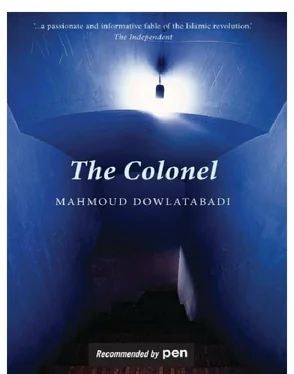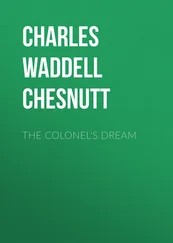How can they even think like that?
As the old man entered the courtyard of his house, he stopped dead in his tracks. He could not believe his eyes. There, ghostlike, set up on boards over the pond, 51stood the headless torso of Amir Kabir. So, thought the colonel, Amir has finally managed to finish something. The statue was over six feet tall. Amir must have brought it up from the poky little basement in sections, to assemble and finish off outside. But he had not yet mounted the head on the torso. The Colonel was on the verandah, holding it in his hands and inspecting it. Warm blood, that warm glistening blood of old, was seeping slowly from The Colonel’s neck. Every now and then, with his customary dignity, he dabbed at it with a clean white handkerchief, never taking his eyes off the face of the great Amir Kabir.
Standing on the verandah steps, right in front of The Colonel, Amir did not notice that his father had returned. He squinted back and forth, at The Colonel and at his creation, as if seeking approval, even praise, for his work. It was a naïve expectation to have of The Colonel, thought his father, even though The Colonel had the most refined artistic taste. Amir clearly did not know him very well for, as far as The Colonel was concerned, if a man had done something well, he had done no more than was his duty.
Nobody should expect a reward for just doing his duty. No, Amir had not yet understood what The Colonel was all about.
Even so, as The Colonel gave Amir back his head, he smiled at him as if to show that he was pleased with him. Amir, pleased by this, carefully took his head back from him. The Colonel folded his arms across his chest and stood rigidly at ease in his black polished boots, clutching his white, but slightly pink handkerchief, as if watching to see how work on his statue progressed.
Standing on his stool, and without taking his eyes off his creation, Amir placed the head on Amir Kabir’s sturdy shoulders, ran his hand over his beard and moustaches, arranged the tall black hat on top of his curly hair, and then stepped down.
On that sunny day, the colonel saw in Amir’s eyes a glow such as he had never seen in a man’s eyes before. Amir’s eyes now sparkled with life. As if in a trance, Amir walked backwards to the bottom of the verandah steps, unable to take his eyes off his splendid statue. He halted in front of The Colonel’s boots and, folding his arms across his chest like him, stood there for a time that seemed would never end and inspected his creation.
I don’t mind about my poor feet. I just don’t want to let a sudden movement of mine shake Amir out of his trance. I’ll just wait here until Amir looks my way and see if he notices me.
He did not have to wait long for Amir to notice him standing there in the rain, with water dripping from the brim of his hat, soaking into his collar. Stirred to take pity on the old man, he came up, took him gently by the arm and led him from the pond up the steps onto the verandah. To show his father and The Colonel due respect, Amir stood by the doorway and waited for them to go through ahead of him. But The Colonel had vanished, right from where he had been standing. Amir led his father inside and sat him down by a table next to the stove. The stove was warm and the colonel could see from Amir’s behaviour that a complete change had come over him, for his son was now treating him like a hospital patient. First he took from him his hat, heavy and wet from the rain, took it outside to wring it out, and put it by the stove to dry. Then he took from him his overcoat and hung it over a chair by the stove. Then it was the turn of the old man’s jacket, waistcoat, trousers and long-johns. Finally he brought him a blanket to get warm, something that had never occurred to me all the time I’d been wrapped up shivering in that old sheet, and held it round him so that he could strip down to the buff and hang all his clothes out by the stove to dry.
There was no doubt as to how the stove had been kept going. It must have been Farzaneh who had brought over a drum of paraffin for us while Qorbani wasn’t looking.
Amir poured a glass of tea and put it on the table in front of his father. He then brought the sugar bowl and put it within reach, so that his father could help himself without having to unwrap the blanket.
That’s all very well, but Amir hasn’t noticed that my mind is on something else. I want to find one of the old photographs of Masoud and put it next to the ones of Parvaneh and Mohammad-Taqi, beneath The Colonel’s toecaps. I know where to look for it. Under the bed in the side pocket of a suitcase. I’ve even got the key on me…
Amir was sitting opposite his father with his elbows on the table, his chin resting on his fists and squinting intently at him as if to convey to him that the important part of his life’s work was now done and that he now wanted to embark on something new. the colonel could hardly believe that he had chosen this juncture to undergo this sudden change, and was now looking life in the face again, but neither did he want to dismiss it out of hand. Nothing ever surprised him, and he was well aware that nobody could remain totally quiet and passive for ever, for no-one could ever survive like that.
Experience, sir, experience.
He and his whole generation were scarred by the events that had followed 1953. 52After that disaster, they were all paralysed by a pervading sense of pessimism, which had lasted for about twenty years. It only lifted when the generation responsible for the catastrophe had been worn out by defeat and had given way to a new one. In the second half of that period, the fight between the two generations had been quite something to behold.
Not that the new generation that emerged after that fight were any more sensible or realistic. The next generation had been founded on rejection as well, rejection of everything. Out of this decay had been born revolt. The fathers had rejected everything except their nostalgia, while the conduct of their sons made everyone repudiate them; they even repudiated themselves. The fathers were crippled, while their sons were apathetic and rootless. Neither generation wanted to know anything about the other, and the result was that they blinded one another to both the future and the past. One lot were passive rejectionists, while the other lot were catastrophic in their activity. The parents no longer had the energy or ability to explain things or pass on their experience, while the children did not have the faith or the patience to take such lessons on board. It was like the game when children bet on an uncut watermelon being ripe or not. Some bet it would turn out to be ‘as green as soap,’ while others reckoned it would be ‘ripe and red as blood.’ Neither party had a reliable knife to cut it open and see, or sufficient courage or even permission to do so. So history remained unopened and unknown, until it rotted.
And now Amir’s face was a mirror, reflecting that rottenness, and it reminded the colonel of many people in his distant past. Both the colonel and Amir could think of many fathers and sons, all at loggerheads with one another, not quiet and perplexed, like so many now. Every time they met, an argument ensued. They would attack and abuse one another and then go their separate ways. They knew each other’s sore points and were expert in finding precisely the insult that would cause the maximum hurt. But now Amir and the colonel were faced with a quite different problem: for a long time now, there had been no quarrel between them. Present circumstances had levelled all their differences — like a modern plough that, when driven across any kind of land — be it fallow land, irrigated, dry land or barren ground, or just a vegetable plot — turns it all over the same. The two generations were going over the most important points of a debate about the period of ‘decay’ without there being any differences between them. What was left out of the debate however, was the matter of how each one faced up to this rottenness, for there was no argument between them as to the existence or not of this rottenness, or of its massive scale. The only question now was how each of them would deal with it.
Читать дальше












